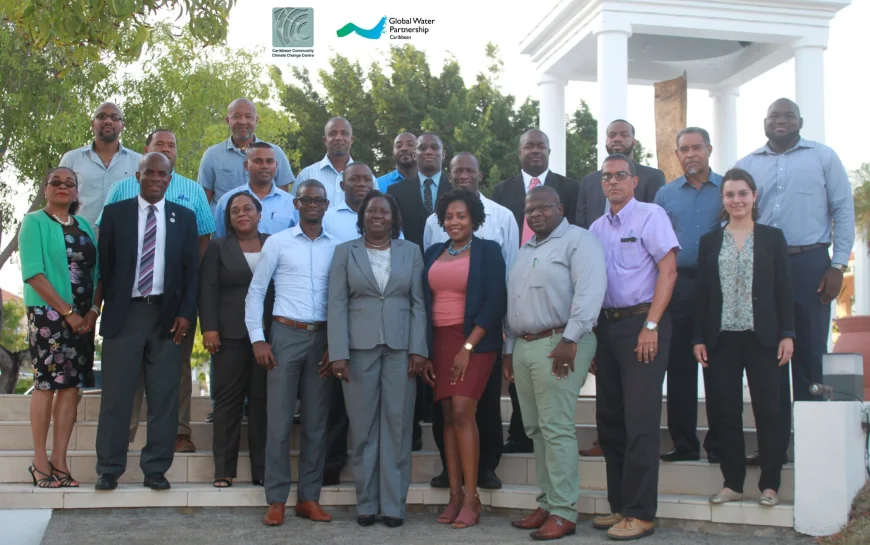Improving access to and delivery of climate finance for frontline communities, small and micro-enterprises and civil society organisations
Caribbean SIDS are investing in climate mitigation and adaptation, but need the financial and technical support to deliver emissions reductions rapidly and adapt and build their resilience to the unavoidable climate change impacts that are already underway. Wealthy developed countries must fulfil their promise of US$100 billion annually from 2020 through to 2025 to support developing countries in this transition and scale up action under the Paris Agreement. A roadmap and work plan should be adopted at COP27 for setting and delivering the new climate finance goal beyond 2025, recognising the need to mobilise trillions rather than billions to achieve the 1.5 ̊C goal and low-carbon and resilient transformation.
In scaling up climate finance, it is critical that this is mainly grant-based, predictable, transparent and the mechanisms are in place to ensure that these funds are channelled to the local level to meet the needs of frontline communities and build resilient livelihoods and ecosystems, including for the most vulnerable and marginalised groups. We not only need to double financing for adaptation by 2025, but ensure that at least 25% of total adaptation finance supports locally-led adaptation in SIDS and other developing countries. This must include finance to strengthen the capacity and actions of frontline communities, enterprises and civil society organisations to adapt and build their resilience.
Ensuring additional and dedicated finance for loss and damage and operationalising the Santiago Network on Loss and Damage
Loss and damage must be high on the agenda at COP27. For 2022 alone, we have witnessed the devastation caused by Hurricane Ian in the Caribbean and eastern United States, severe flooding in Pakistan and Nigeria and the ongoing drought in the Horn of Africa where 22 million people are at risk of starvation[vii].
A finance facility to provide additional and dedicated finance to address loss and damage, which is separate and apart from mitigation and adaptation finance, is urgently needed. The Santiago Network on Loss and Damage also needs to be operationalised as an effective mechanism to catalyse and deliver the required technical assistance to vulnerable countries. A decision establishing this entity and plans for resourcing it should be agreed at COP27. As with broader climate finance, it is important to ensure that mechanisms are in place to ensure that loss and damage funds and this technical assistance are channelled to the local level to support frontline communities.
Supporting a just transition for pro-poor, inclusive, sustainable and resilient development
The Alliance is also calling for a just transition of the workforce, including formal and informal workers, across various economic sectors and re-orienting development towards a model that diversifies the energy matrix, moves toward clean, renewable technologies, energy efficiency and sustainable agri-food systems. This includes the recognition of the importance of small and micro- enterprises as a pathway to pro-poor, inclusive, sustainable and climate resilient development. Aligned with the International Labour Organization’s Just Transition Guidelines[viii] and Labour Standards[ix], we need to ensure decent and safe work that pays a living wage as part of the low- carbon and resilient transformation. We need to recognise the issues linked to informality and ensure adequate social protection. In particular, promoting gender equality and social inclusion and addressing widening structural inequalities that are at the root of poverty and vulnerability in Caribbean SIDS and other developing countries is key.
Leveraging trade and investment in support of just transition ideals is also important and ensuring open and informed engagement of civil society, including frontline communities and enterprises, in setting priorities to shape COVID-19 recovery and future development and assessing implementation and progress achieved. This process should build linkages with the Sustainable Development Goals (SDGs) and international human rights standards[x] to ensure pro-poor, inclusive, sustainable and resilient development and the protection of human rights.
COP27 is a pivotal moment. With bold action, in line with the science of the latest IPCC reports, we can keep the 1.5 ̊C goal alive, avoid the most devastating climate change impacts and support Caribbean SIDS and other developing countries to shift to just and resilient development pathways.
Caribbean Natural Resources Institute; Climate Analytics Caribbean; Climate Change Adaptation and Resilience Research Centre at University of The Bahamas; Climate Tracker; Environmental Protection in the Caribbean (EPIC); Freedom Imaginaries; GirlsCARE Jamaica; International Development Empowerment and Representation Agency (iDERA); Panos Caribbean; Shridath Ramphal Centre for International Trade Law, Policy and Services at University of the West Indies, Cave Hill (SRC); SOLORICON for the Caribbean Climate Justice Project; The Breadfruit Collective; The Cropper Foundation; Malcom Ferdinand, Researcher, University Paris Dauphine; Simone Ganpat, Kairi Initiatives; Emma Lewis, Blogger and Activist; Danielle Nembhard, Ph.D. Researcher, James Cook University; Vanda Radzik, Gender and Environment Activist; Christianne Zakour
